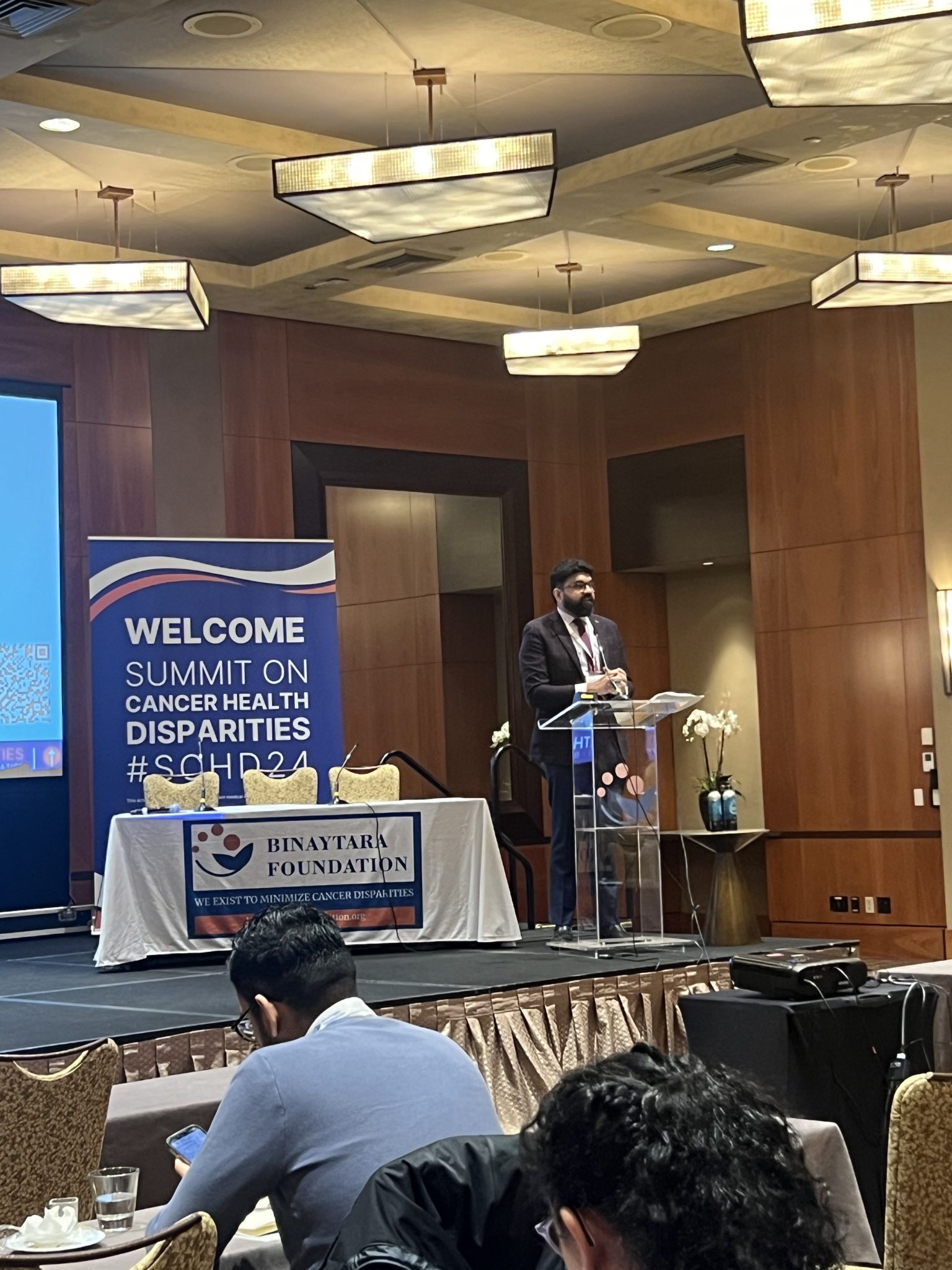Pathology’s Role in Diagnosing Disparities
By: Dr. Srinivas Tantravahi
At the Summit On Cancer Disparities conference, Dr. Kamran Mirza, Clinical Professor of Pathology (Hematopathology) at the University of Michigan, emphasized the critical role of pathology in cancer diagnosis and the current disparities focusing on access to pathology and laboratory medicine.
Dr. Mirza emphasized the significant impact of laboratory medicine data on clinical decisions, highlighting the widely cited “70% claim.” This assertion states that laboratory data influences a substantial 70% of clinical decisions, underscoring the pivotal role of pathology in guiding patient care. Dr. Mirza also underscored the essential role of Pathology and Laboratory Medicine (PALM) in patient-centered healthcare. PALM is crucial in providing accurate diagnoses, guiding treatment decisions, and monitoring patient outcomes. By providing timely and precise laboratory data, PALM contributes significantly to personalized and effective patient care, ultimately improving health outcomes and enhancing the overall patient experience.
With respect to the disparities, Dr. Mirza highlighted the value of access to education, training, and diagnostic tools in cancer care, as illustrated by the case of hematogones often misdiagnosed as residual leukemia in the absence of trained pathologists and appropriate tools.
Dr. Mirza discussed global disparities in access to essential cancer diagnostic tests, using the Ghana example to illustrate significant gaps in healthcare delivery. Investigators from the University of Michigan examined the availability and pricing of WHO-recommended essential tests in Northern Ghana. Their findings revealed severe limitations in diagnostic testing compared to the WHO’s essential diagnostic list, with rural facilities experiencing particularly pronounced disparities. Furthermore, cost compounds these challenges, especially in resource-limited settings.
Dr. Mirza also addressed the shortage of trained pathologists, particularly in regions like sub-Saharan Africa, which exacerbates disparities in cancer care. Dr. Mirza offered hopeful solutions to address these disparities. Telepathology and digital innovations, including artificial intelligence, present opportunities for improved cancer diagnosis and collaboration. He underscored the potential of the Open Pathology Network to enhance access and cooperation in pathology. In summary, addressing cancer care disparities demands concerted efforts to improve access, harness technology, and promote collaboration in pathology.





